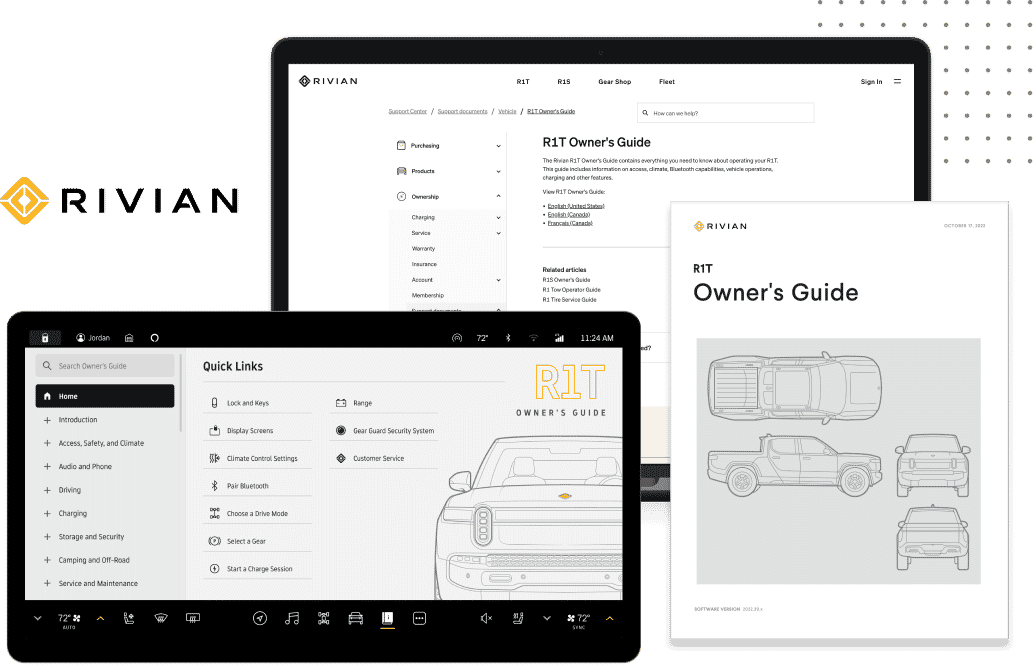In The Press
Speaking the Lingo
Originally published on September 24, 2010 in The 175th Tool Kit - Premium Edition Newsletter
By Jost Zetzsche
I had a great talk this past week with some folks from MadCap. MadCap is the company that split off from Adobe after some of MadCap's current owners felt that Adobe was treating the help authoring product RoboHelp, which it purchased as part of a larger acquisition, too shabbily (the German stiefmütterlich -- "stepmotherly" -- would be a much more colorful term!). So they started their own company and have since given Adobe a run for its money (once they were gone, of course, Adobe resumed work on RoboHelp). MadCap's main product is the help authoring product Flare.
Early on, the people in charge at MadCap recognized that there was a strong link between the language and technical writing industries. (This may have rather a "duh effect" on most of us, but for many in the technical authoring world this discovery has yet to be made.) So they spent quite a bit of early effort to become more visible to us, partly by showing up at industry events but also by providing useful features such as full Unicode support and outstanding double-byte support for East Asian languages (the latest version of RoboHelp® has now caught up on that). Finally, and this is the point I've been trying to make all along, MadCap released Lingo, an integrated translation environment tool.
Before last week I had never actually taken the time to look at Lingo, but I was always very impressed with the fact that "our technology" had been picked up and integrated into a tool that does not primarily define itself as a computer-aided translation tool.
With its latest release, Lingo is now both a tool that easily integrates into the authoring/translation environment of Flare but can also be used as a standalone TEnT for file formats such as MS Word and PowerPoint (all versions), HTML, XML, DITA, and .resx files.
Here are my impressions of the tool: it's a solid, nuts-and-bolts sort of tool that performs very well, certainly and particularly with Flare projects, but may not have some of the bells and whistles of the more well-known competitors.
The translation memories and (full-fledged) terminology databases are maintained in Microsoft SQL Express -- which you'll need to download from MS's website. Both TMs and termbases can be multilingual. The preferred exchange format between Lingo and other tools is TMX; for termbases it's CSV or TBX. I was impressed with the ease of adding terms to the terminology database while at the same time providing the user with the full range of fields and relations that could be entered for each entry if needed. Looking at the way translation memory data is processed, it seemed to me that the development team still needs to implement some structural changes to how the TM maintains different versions of translation of segments: rather than overwrite an old entry with an edited version, it keeps both (or all three or four or however many are being entered). While it is possible to delete the "incorrect" occurrences manually, this seems tedious and unnecessary. Also on the minus side: bi-directional languages (Hebrew, Arabic, Urdu, etc.) are not supported in Lingo.
On the positive side, the tool is very user-friendly and self-explanatory -- important if you consider that it's not only to be used by language specialists but also by managers of technical writing crews. It provides a full-fledged preview feature for HTML files, real-time (squiggle underline) spell-check, and the way that translation teams are involved is very interesting. Translation projects are packaged up in a .zip file that contains TMX data for the translation memory and XLIFF files for all files except HTML and XML (which are presented unconverted as HTML and XML). All this is very apparent and open, there is no need to "hack" the .zip file that contains the translation data (as some competitors require), and it's up to the translator to use either Lingo or another tool to translate these files, zip them up again, and send them back to the project manager.
If you choose to use Lingo, you can either purchase a moderately priced license outright or you can buy a time-limited license for 3, 6, or 12 months, which might make a lot of sense for projects in which you'll have to temporarily work on Flare files but otherwise choose to use another tool.
As a side note, the latest version of the localization tool Alchemy Catalyst also just released a specialized plugin to process Flare files.




